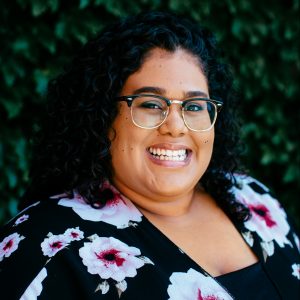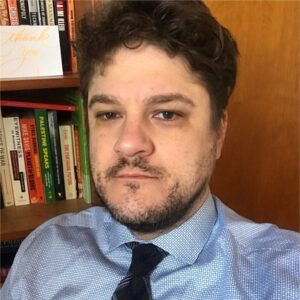University of Wisconsin staff have added a section to the online “Our Wisconsin” course, which all incoming freshmen and transfer students are required to take, to explicitly teach that “even hate speech is protected speech,” Madison365 has learned.
The course is part of a larger Our Wisconsin program, led by the Office of Inclusion Education, which was “created to raise awareness of the diversity across the UW–Madison campus and to encourage students to share their diverse perspectives to build community and create a sense of belonging,” according to the program’s website.
The Our Wisconsin course was first administered as a pilot in 2017 in person at residence halls, but was turned into an online-only offering when the COVID-19 pandemic forced the campus to close. In 2020 the university made it required of all incoming students, along with a course on alcohol and other drug abuse, and another on violence prevention.
University officials did not allow Madison365 to see the final Our Wisconsin course as presented to students, noting that the bulk of the course is produced by a third party, Vector Solutions, and is therefore subject to copyright law and exempt from open records. The university did, however, provide the customizations authored by university staff.
Among new additions this year were several mentions of the video that became public in May, in which a white UW student can be seen and heard saying violent and racist things about Black people. A spokesperson for UW’s Student Affairs division said the Blk Pwr Coalition, which formed in response to that video, requested those additions.
That video prompted many calls for the expulsion of the student in the video, but the university took the stance that it couldn’t expel her because her racist remarks were protected by the First Amendment.
Another addition to the Our Wisconsin course reads:
Here at UW–Madison, we believe that the ability to exchange, consider, and challenge different ideas is central to the educational process. This means that those who come to UW–Madison must be prepared to have their beliefs and ideas challenged, sometimes in ways they find uncomfortable or, in some instances, even offensive. We recognize that it can be difficult and sometimes even painful to hear points of view with which individuals powerfully disagree. Even hate speech is protected speech. However, permitting the expression of challenging, and even potentially offensive, beliefs is the cost of the freedoms that allow UW–Madison to generate knowledge at the forefront of academic disciplines and holistically assess the implications of change on our world. We encourage you to learn more about free expression at UW-Madison and consider how you will engage in dialogue and experiences to challenge and expand your perspective and influence.
University officials refused to say who requested that addition.

“That content was added in consultation with different campus partners to make sure that students were getting early exposure and access to when we say free freedom of speech and freedom of expression at UW-Madison, what does that mean?” Office of Inclusion Education director Caitlyn LoMonte said in an interview. “It was something that was strongly recommended to us, in thinking about how we talk about, broadly, the free speech expectations. It’s something that I’ve been in conversation with a lot of students about and how difficult that is to navigate.”
A student affairs spokesperson refused to say who “strongly recommended” that language be added.
Madison365 has submitted open records requests in hopes of finding out.
The additional language comes as the university is under pressure from conservatives in the legislature to cut all diversity, equity and inclusion personnel and programs. Assembly Republicans cut $32 million from the university’s budget, which they intended to lead to the elimination of all DEI programs and positions; Governor Tony Evers vetoed that cut. Later, Assembly Speaker Robin Vos said UW employees would not get their promised four percent cost of living raises if UW didn’t eliminate DEI across the entire statewide system.
LoMonte said that pressure is not the direct reason the language was added, but it might be related.
“It has never been phrased to me that way that this must go in because of any kind of outside entity,” she said. “I’ve also been in lots of conversations about the current climate around that (DEI) work. Pure assumption … I’m sure there’s some connection. Everything that we do is connected and impacting other folks in various places. But it has never been phrased … that this is something that we must do.”
Dr. Jeff Tischauser, a UW alum and senior policy analyst at the Southern Poverty Law Center, which tracks hate groups, said the addition to the course looks like “a kind of a gut kind of impulse of appeasement to this conservative movement who was very narrowly focused on a few issues around the First Amendment.”
The additional language corresponds with a new page on the university’s website outlining the university’s stance on “free expression.” That web page includes the same paragraph that was added to the Our Wisconsin course, verbatim, except that the website does not say “Even hate speech is protected speech.” That sentence appears only in the Our Wisconsin course.
“Don’t mind these racist flyers”

“It strikes me as a very narrow understanding of First Amendment issues,” Tischauser said, noting that the simple paragraph added to the course lacks necessary nuance.
“There’s just some kind of wrong, or maybe misguided, ways to think about the First Amendment in relation to hate speech, which we see in this course,” Tischauer said. “Hate speech is not always protected. When it’s used in the commission of a violent act, or when someone posts an anti-semitic flier near a synagogue, or if someone’s posted racist graffiti next to the Black Student Union on campus, that is a hate crime, that is hate speech in the commission of a crime … that nuance does not appear in these changes.”
Tischauser said the new language teaches students of color and students from other marginalized groups that UW might not be a safe place for them.
“This statement is really teaching students, ‘Oh, don’t mind these racist flyers … don’t be upset about these racist flyers. It’s the person’s free speech to post these flyers,’” he said.
University of Wisconsin Police Department Chief Kristin Roman said her department hasn’t changed the way it deals with incidents of hate speech or with any other free expression issues.
“There hasn’t been any directive” to be more permissive of hate speech, she said. “And there certainly isn’t a shift in how we approach protecting First Amendment rights.”
She said officers take into consideration the “time, place and manner” of any demonstration or speech. For example, a white nationalist group’s rally might be allowed at a neutral time and place but might not be if it’s clearly targeted to intimidate a minority group. UWPD will also take into consideration whether any other rules are being broken, like the prohibited use of amplification or blocking traffic.
“Those are case-by-case judgment calls on what’s safe, and what’s not safe,” she said.
Additionally, any time a crime is committed with clear motives based in racial or sexual discrimination, it can be enhanced as a hate crime under state law. Shouting racial slurs while assaulting someone, for example, is not protected speech.
“Even absent violence, there could be situations where other factors are at play,” Roman said.
For example, vandalism is always illegal, so spray painting racial slurs or symbols would be a crime. Writing racial slurs or racist symbols in chalk, however, would be legal, but the slurs and symbols could be removed without infringing on anyone’s First Amendment rights.
Beyond police intervention, the university’s Dean of Students office encourages students to report incidents of hate and bias, which, according to the office’s website, could include acts and expressions that likely fall into the category of “protected speech,” like “Microaggressions, Slurs, Degrading language, Epithets … (or) Symbols.”
A spokesperson for the Dean of Students did not respond to messages seeking comment as to whether their approach to those hate and bias incident reports would change, given that most of those types of incidents would be protected speech
Tischauser also said the new language in the course, along with a broader campaign to champion “free expression,” will signal to hate groups that the University of Wisconsin is a prime target. He said he’s already seen that in Florida, where the administration of Governor Ron DeSantis has put out similar messages regarding “free expression.”
“There’s actual literal Nazis, who I see on these really obscure forums, who are cheering on the promotion of these false ideas of free speech … They’re in Florida right now, using some of these changes in and around campuses to what they think is their advantage,” he said. “I deeply worry that that’s what we’re going to start seeing in Wisconsin. Because the UW system, because the University of Wisconsin-Madison, isn’t taking the issue of hate speech seriously.”
Multiple DEI professionals at the University of Wisconsin either didn’t respond to messages or declined to comment, and said they had been unaware of the new language added to the Our Wisconsin course before being contacted by Madison365. Multiple student organizations representing marginalized students also did not respond to requests for comment.
“Last spring semester, our community witnessed hateful words, but also learned that it’s protected speech,” said UW student MGR Govindarajan, who represents the campus area on the Madison Common Council, in an email to Madison365. “Universities have to walk a fine line between protecting their student body while also protecting an individual’s constitutional rights. Though hate speech may be protected, any speech promoting and inciting violence, or directed threats, are not protected, and I expect the University to use its resources to protect our student community if that were to ever happen.”




























